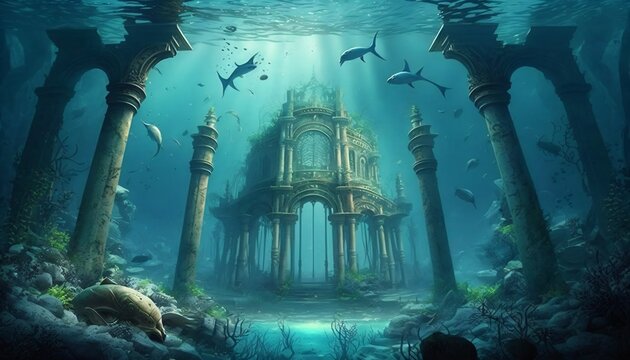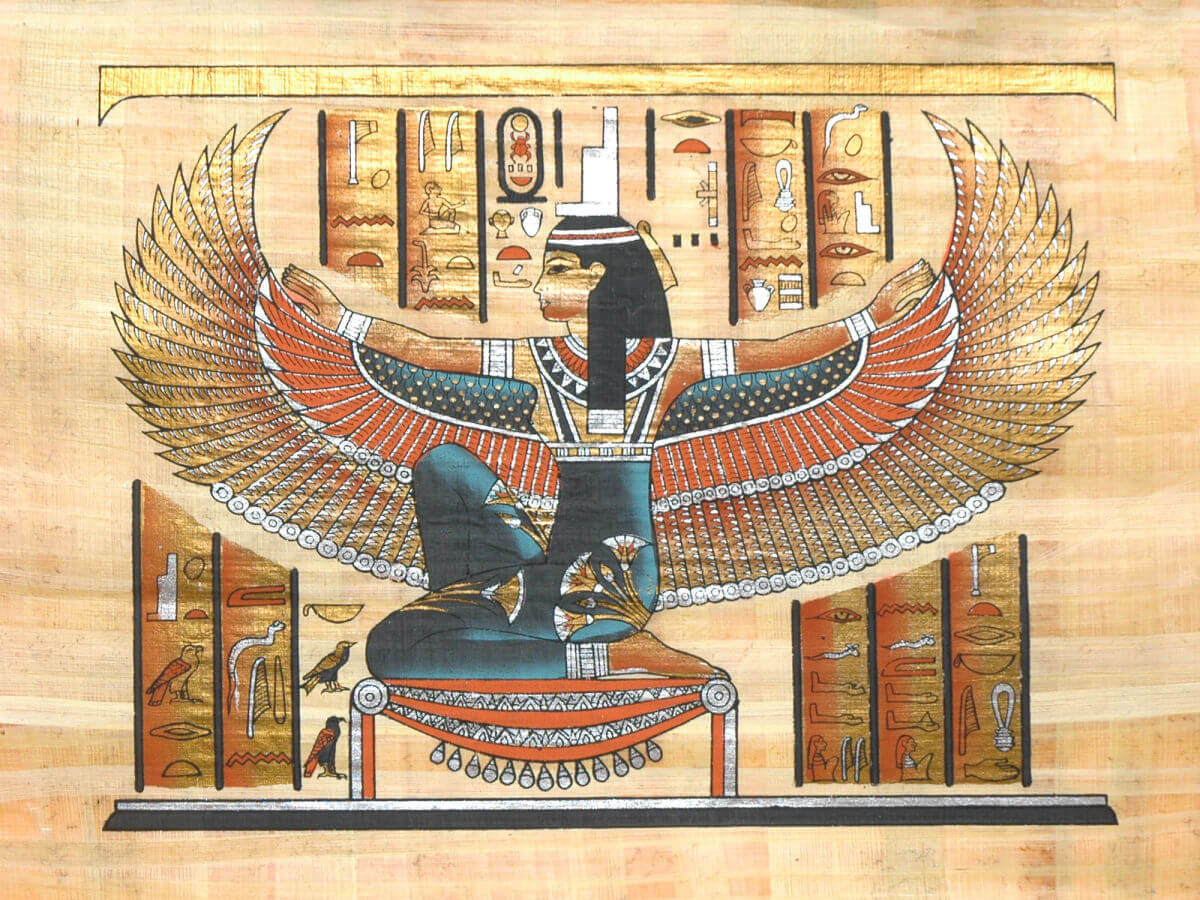
Atlantis: A Cautionary Tale for the Modern Age
For millennia, whispers of a lost, advanced civilization have echoed through the halls of history.
Atlantis, a name imbued with the potent allure of the unknown, beckons to explorers, ignites the imaginations of writers, and tantalizes scientists with the possibility of rewriting history.
But is Atlantis simply a figment of Plato’s philosophical musing, or does a submerged truth glimmer beneath the ocean’s depths?

Our journey into the Atlantean enigma begins in ancient Greece, where philosopher Plato first breathed life into its legend. In his dialogues “Timaeus” and “Critias,” he recounted a tale passed down through generations.
Atlantis, he claimed, was an island nation of unparalleled splendor and power, boasting magnificent architecture, advanced technology, and a utopian society guided by noble principles. But hubris, the fatal flaw of men, eventually led to their downfall.
The gods, angered by their arrogance, unleashed unimaginable cataclysms that plunged Atlantis beneath the waves, leaving only whispers and unanswered questions in its wake.
Plato’s tale remained confined to the realm of myth. Yet, its captivating narrative refused to be silenced. Explorers scoured the Mediterranean, fueled by the hope of unearthing the sunken city. Scholars scoured ancient texts, searching for corroborating evidence. Atlantis became a magnet for dreamers and adventurers, its allure defying the passage of time.
In our current age the story of Atlantis has become the stuff of fantasy and science fiction. With movies, such at Wakanda Forever and Aquaman, the story of Atlantis is put on the same shelf as that galaxies far far away and yellow brick roads.
Yet, with the advent of modern technology quest to solve the mystery of Atlantis has been reignited. Thanks to the fascinating usage of Sonar technology we are mapping the ocean floor, revealing vast, unexplored landscapes. Oceanographers studied underwater ruins, remnants of ancient civilizations swallowed by the sea.
While no definitive Atlantis has been unearthed, tantalizing clues have emerged from the deep. There are numerous locations, mostly in the Atlantic ocean, that have been listed as potential places of interest, for the academic scientific community, and in the imagination of the public as well.
Off the coast of Bimini Island in the Bahamas, divers have discovered an enigmatic underwater formation of rectangular stone blocks, dubbed the “Bimini Road.” Though its origin remains fiercely debated, some posit it as a man-made structure, perhaps a remnant of the lost city.
In Japan, the Yonaguni Monument, an underwater complex of seemingly carved terraces and structures, has sparked similar intrigue. Could this be the fabled Atlantean capital, preserved in the silent embrace of the ocean?
Beyond physical evidence, other strands of the Atlantean tapestry add intriguing layers to the mystery.
Similarities have been drawn between the advanced technologies described in Plato’s Atlantis and the technological leaps of certain ancient civilizations. Could Atlantis hold the key to unlocking long-lost scientific secrets, whispers of forgotten knowledge echoing across the millennia?
Is it a coincidence that the timeline in the story Plato wrote just happens to line up with what has now become know as the Younger Dryas period?
The Younger Dryas period, which occurred circa 12,900 to 11,700 years before present time, was a time of incredible turbulent change in the Earth temperature and living conditions.

ocean would look like if it were drained of 400 feet of water.
This period of time, when the temperature of the earth shifted up and down several times in a relatively short period of time, has been attributed to the abrupt end to many species of animals and changes to the physical appearance of the Earth. With the waters of the Atlantic rising some 400 ft.
There are some who believe that the “sea people” who show up in many myths that cross several cultures around the coastline that surrounds the Atlantic Ocean, with their red hair and fair skin, may have been the survivors of a natural occurring catastrophic event that was associated and attributed to the Wrath of the Gods.
However, there are still a chorus of skepticism also challenges the Atlantean narrative. Critics argue that Plato’s tale was merely a philosophical allegory, a cautionary tale about the ego of mankind and divine retribution.
They point to the lack of concrete archaeological evidence, the inconsistencies in geographical descriptions, and the absence of corroborating accounts from other ancient civilizations.
But the number of skeptics is growing smaller as each year passes. The old long-held narratives are being wiped away with each new discovery made.
And as they say, Skeptics are going to skepiticate.*Potentially a new word! And you read it here firs folks! Ha!
Yet, as it goes, the lack of definitive proof is precisely what fuels the Atlantean allure. It allows the mind to wander, the imagination to conjure up visions of a world lost, an Atlantis that exists not on a map, but in the tapestry of human storytelling, the yearning for a grander past, a hidden chapter in the epic saga of our species.

So, does Atlantis exist?
The answer, perhaps, lies not in a definitive “yes” or “no,” but in the very act of searching. The evidence, and there really isn’t much, feels like random pieces of a jigsaw puzzle (and we don’t have the front of the box to use as a cheat. We look at each piece closely, and we may think that we have an idea of what they will look like when they are all put together, but without the rest of the puzzle we, really, have no idea. Some might say that’s the fun of it!
The quest for Atlantis is a journey of discovery, a voyage into the uncharted realms of history, science, and human imagination. It compels us to look beyond the surface, to question established narratives, and to embrace the tantalizing possibility that beneath the waves of the unknown, secrets yet untold may slumber.
The mystery of Atlantis remains a siren song, beckoning us with its seductive allure. Whether it ultimately reveals a sunken city or simply the unyielding grip of myth, it reminds us that history is a canvas painted not only with facts but also with dreams, whispers, and the captivating potential of what might have been.
As we continue to explore the oceans and the depths of our own curiosity, the legend of Atlantis will undoubtedly continue to cast its spell, a testament to the enduring power of human imagination and the insatiable hunger for answers that lie beyond the horizon.
So what would it mean to you if there was an actual discovery that was undeniable? What would it mean to the history of our beautiful home planet, Earth?
In many ways the tale that Plato told, about a distant land that succumbs to their own vices, that has let ego run riot over nature, could truly be listed with the most important cautionary tale of our modern age. It makes us pause and consider, if only for a minute, what kind of trajectory are we now heading?


